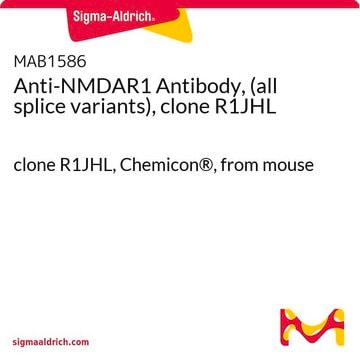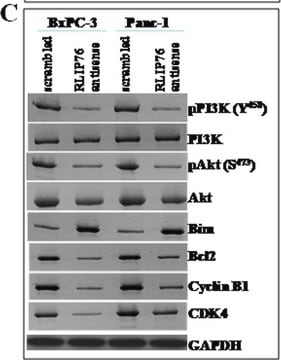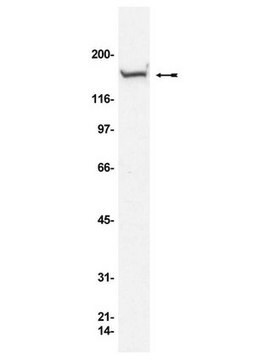05-796
Anti-Akt1/PKBα Antibody, clone AW24, rabbit monoclonal
clone AW24, Upstate®, from rabbit
About This Item
Produits recommandés
Source biologique
rabbit
Niveau de qualité
Forme d'anticorps
purified antibody
Type de produit anticorps
primary antibodies
Clone
AW24, monoclonal
Espèces réactives
human, mouse, rat
Fabricant/nom de marque
Upstate®
Technique(s)
immunoprecipitation (IP): suitable
western blot: suitable
Isotype
IgG
Numéro d'accès NCBI
Numéro d'accès UniProt
Conditions d'expédition
dry ice
Modification post-traductionnelle de la cible
unmodified
Informations sur le gène
human ... AKT1(207)
Spécificité
Immunogène
Application
Signaling
PI3K, Akt, & mTOR Signaling
Qualité
Description de la cible
Forme physique
Stockage et stabilité
Informations légales
Clause de non-responsabilité
Vous ne trouvez pas le bon produit ?
Essayez notre Outil de sélection de produits.
En option
Code de la classe de stockage
10 - Combustible liquids
Classe de danger pour l'eau (WGK)
WGK 1
Certificats d'analyse (COA)
Recherchez un Certificats d'analyse (COA) en saisissant le numéro de lot du produit. Les numéros de lot figurent sur l'étiquette du produit après les mots "Lot" ou "Batch".
Déjà en possession de ce produit ?
Retrouvez la documentation relative aux produits que vous avez récemment achetés dans la Bibliothèque de documents.
Notre équipe de scientifiques dispose d'une expérience dans tous les secteurs de la recherche, notamment en sciences de la vie, science des matériaux, synthèse chimique, chromatographie, analyse et dans de nombreux autres domaines..
Contacter notre Service technique






![Anticorps anti-intégrine αM [CD11b], clone OX-42 clone OX-42, Chemicon®, from mouse](/deepweb/assets/sigmaaldrich/product/images/658/396/c01fc480-dd82-42b9-9735-b53d97a11b17/640/c01fc480-dd82-42b9-9735-b53d97a11b17.jpg)

